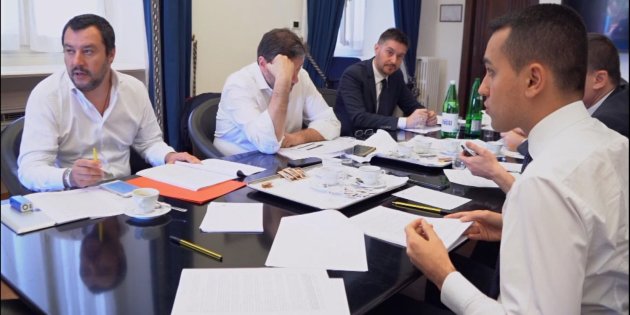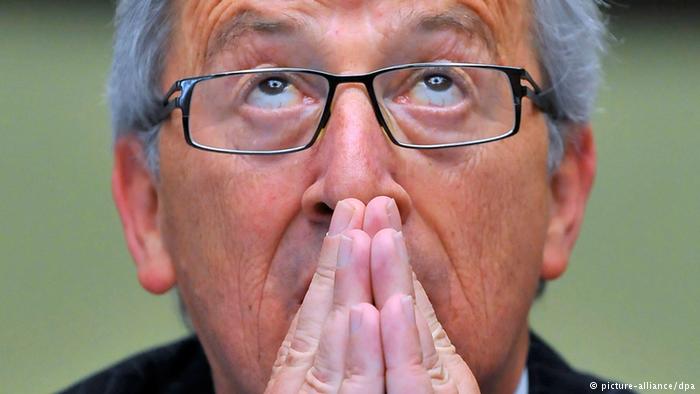Another anti-establishment government on the horizon in Europe
Will Brussels be bullied into reforms or will it take the lead?

The week passed by and even though it was promised in 24 hours, the new Italian Prime Minister is still unknown. The “yellow-green” alliance formed by the Five Star Movement and The League of Matteo Salvini has worked all week at the so-called “Government Deal”, an actual forty-pages long booklet that will serve as the program base for the future government. There are still key issues to be smooth over and indubitably both electorates will be disappointed by one or more reforms missing or watered down. Nevertheless the two leaders Matteo Salvini and Luigi Di Maio just have to find a Prime Minister candidate and propose the whole deal to the Italian President Sergio Mattarella. This last part of the deal is no trivial matter, as it seems there will be a cross-veto not to have neither Salvini nor Di Maio as premier and, furthermore, that he must not be a “technical” one like Mario Monti but a full-fledged political Prime Minister, which means they will have to find somebody akin to both parties.
In the discussed deal, during the past week, there was a leak of a Monday draft that has kept the EU awake at night. Both parties denied that version as the definitive one and the new deal seem to be slightly more conciliatory towards the EU as it doesn’t mention quitting the Euro, blocking the High-Speed rail EU funded link between Turin and Lyon and the infamous request to waive 250 billions of Italian public debt from the European Central Bank.
 The new draft (which is still being modified and refined at the moment), is yes less Eurosceptic but is no less ambitious in its reforms, both internally and internationally. Requests like an overhaul of the pension reform (which was adopted just a few years ago to appease the other member states on the seriousness of the country’s spending review efforts); the proposed universal basic income, the flat-tax system along with many other interventions are poised to strain the already shaky national budget, which the ECB so closely monitors. On top of this, the contract foresees the possibility of re-evaluating the debt/deficit relationship in order to exclude public investments and the quantitative easing debt from the count, the re-discussion of European Treaties, a harder stance on immigration and a lifting of Russian sanctions are poised to disrupt Europe once again.
The new draft (which is still being modified and refined at the moment), is yes less Eurosceptic but is no less ambitious in its reforms, both internally and internationally. Requests like an overhaul of the pension reform (which was adopted just a few years ago to appease the other member states on the seriousness of the country’s spending review efforts); the proposed universal basic income, the flat-tax system along with many other interventions are poised to strain the already shaky national budget, which the ECB so closely monitors. On top of this, the contract foresees the possibility of re-evaluating the debt/deficit relationship in order to exclude public investments and the quantitative easing debt from the count, the re-discussion of European Treaties, a harder stance on immigration and a lifting of Russian sanctions are poised to disrupt Europe once again.
Having said that, whether or not they will even form a government is a secondary matter here. Europe fourth-biggest economy is not performing well at all, with high unemployment and low growth plaguing the country since the economic crisis (which is ten years now). The past government were mostly compliant with the EU austerity policies and yet, the population has not seen any real improvement. On top of this, the migration crisis has hit Italy particularly hard and the population perceives the European decision-making as an opportunistic sacrifice of the peninsula to accommodate the needs of the other member states, starting from Angela Merkel’s Germany. When it comes to immigration, every country bordering Italy has sealed the border and yet the reform of the Dublin agreement is still nowhere to be found. When it comes to economic and monetary policies, Germany and the northern states are still reluctant to make any decisive move on deeper integration. Every time a news passed in the media saying that sacrifices were to be made and that the “hawks” in the north were not willing to pour any more money into the system, it felt to the vast majority as if the principle of solidarity was only to be applied to them and that sacrifices were only meant one way.
The elections have put in charge two parties that are vehemently against all of this and, even if Europe is not the direct responsible nor the primary target of the Italian’s rage, it will be caught in the storm.
Bearing in mind the mutated political scenario in many of the Member states and the internal difficulties of every establishment parties still in charge as well as the incoming European Elections in 2019, the upcoming months will be key for the future of the Union.
And yet, like the USA-China relationship or the generous pre-Brexit agreement reached by David Cameron with the EU, there’s the possibility that the standing still of the reform pact between Emmanuel Macron and Angela Merkel could be bullied into making the concessions that the previous Italian government was dying to receive. If that ends up being the case, it would be pretty disheartening to see that instead of moving thanks to a positive influence from the leaders, reforms only move when negative inputs are provided, such as the anti-establishment winds or the threat of Europe’s “friends”.
